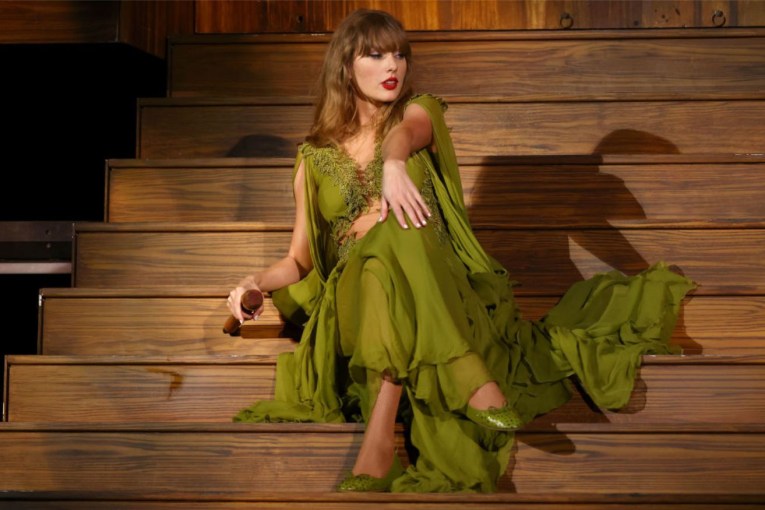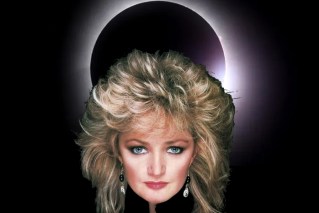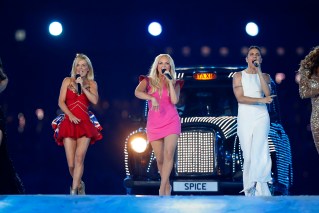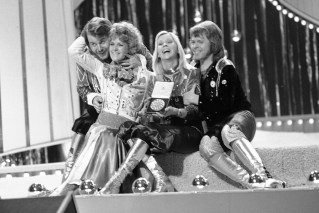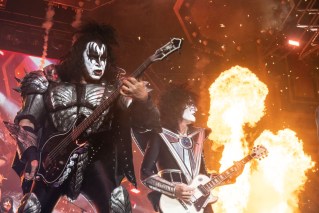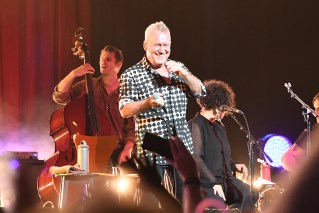The Australian music industry’s legal time bomb
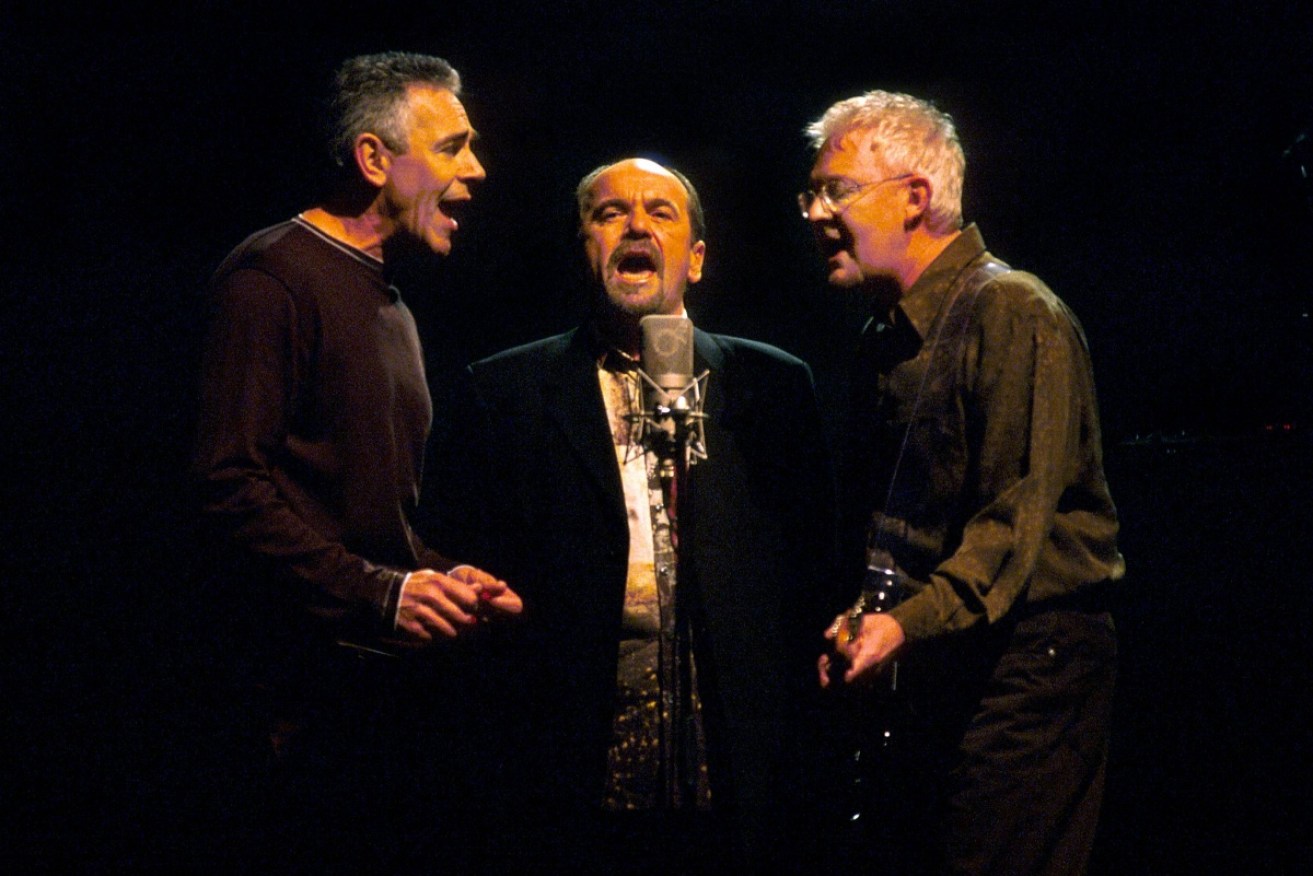
Beeb Birtles, Glenn Shorrock and Graeham Goble of the Little River Band have lost the rights to their name. Photo: Getty
This year marks the 40th anniversary of a milestone in the history of Australian popular music.
In November 1977, the Little River Band cracked the Top 20 in the US music charts with their catchy single, Help Is On Its Way.
The song, written by lead singer Glenn Shorrock, peaked at number 14 on the Billboard charts and paved the way for an Australian invasion of the US music market that has continued ever since.
Between 1977 and 1983, LRB notched eleven top 20 hits in the United States and they were followed by other hit-makers that included Air Supply, Men At Work, INXS, Savage Garden, Wolfmother, Tame Impala and more.
But for Shorrock and other LRB founding members, the anniversary of the band’s breakthrough in America is tinged with bitterness.
Since 1998, all of the original members, including Shorrock, Graeham Goble, Beeb Birtles and Derek Pellicci have been blocked from performing their hits in the US and Australia under the “Little River Band” moniker because they no longer control the trademarks.

The Little River Band perform at the APRA awards in Sydney in 2002. Photo: AAP
Stephen Housedon, a British-born musician and songwriter, now owns the rights and has issued legal warnings to the founding Australian members that they cannot perform as LRB.
Housedon was invited by the founding members to join LRB as lead guitarist in 1983 and is believed to have assumed full control of the trademarks in the late 1990s.
For Shorrock and the other original members, loss of ownership has meant that Housedon claims all revenue from sales of merchandise and concert tickets at events promoted with the words “Little River Band”.
Although none of the founding members have performed as LRB for almost 20 years, Housedon during that time has been promoting an all-American line-up using the band’s famous name.
Shorrock told The New Daily that he doesn’t want to give the controversy much energy, even though he believes his image and identity have been used to promote events for the American version of LRB.
“It’s frustrating,” he says.
“A few years ago we told them they can’t celebrate our history, especially the songs we wrote and own.
“But the reality is they can safely milk a niche market over there in the United States.”
Scores of Aussie music icons exposed
LRB’s Australian founders are not the first celebrated musicians to find themselves on the wrong end of disputes over name ownership.
Trademark battles are common in the US music industry where groups such as The Drifters and The Platters have been at the centre of bitter legal fights.

Glenn Shorrock on stage at Melbourne’s Palais Theatre in 2015. Photo: Noise11
LRB’s former manager Glenn Wheatley said the controversy over name ownership had taken a toll on Shorrock and the other founding members but they are not likely to take the risk of a costly court battle to get the trademarks back.
“We’ve all been exhausted by this,” Wheatley told The New Daily.
“It’s a complicated situation – it’s disappointing and sad.
“Glenn [Shorrock] can’t even promote his solo concerts as the former lead singer of the Little River Band.”
An audit of Australia’s trademark registry by The New Daily found that more than half of the country’s forty biggest chart-topping bands since 1970 have never bothered to register trademarks to protect their performance rights and branding.
The high-profile members of top-selling bands such as Air Supply, Split Enz, Regurgitator and Savage Garden do not have trademarks registered with Australia’s intellectual property regulator, IP Australia.
These bands and many others listed below are potentially exposing their businesses to imitators or sharp businesspeople taking control of their intellectual property.
- Men at Work
- Noiseworks
- The Choirboys
- Killing Heidi
- Divinyls
- Air Supply
- Split Enz
- King Gizzard and the Wizard Lizard
- Augie March
- Crowded House
- Savage Garden
- 1927
- Dynamic Hypnotics
- Mondo Rock
- The Black Sorrows
- Jo Jo Zep and the Falcons
- Hoodoo Gurus
- Spiderbait
- Regurgitator
- Redgum
- Goanna
- The Angels
The founders of these bands risk losing performance rights and income from merchandising to outsiders looking to exploit their public reputations.
It’s a potential powder-keg for the local music industry, according to legal experts, because consumer demand for the products of popular bands doesn’t always die when they take a break from public performances.

Split Enz’s Neil and Tim Finn do not have a trademark registered. Photo: AAP
Lawyers are warning that musical performers could be jeopardising lucrative income streams by allowing opportunists to exploit their fan bases and musical reputations.
“If you’re a band on the rise you can never be over-protected,” says Simon Gapes, an intellectual property lawyer with Griffith Hack.
“Obtaining protection early can avoid higher costs in the long term that may arise if there is a dispute over rights to a band name.”
James Maxwell, one of Australia’s leading intellectual property lawyers, has observed a rise recently in the number of retired and active performing artists moving to protect their intellectual property.
“I think the LRB experience has gained a lot publicity and it has a sent a warning to people in the industry that they need to protect intellectual property, especially their brand names,” he says.
“The moment you have to use a new name other than the one you are known for by the public then you’re going to lose your connection with consumers.”
Names protected
Most of the bands that have no trademark protection were formed in the 1970s and 1980s when only a handful of managers were alert to business risks stemming from intellectual property law.
From a business perspective, legendary bands such as Midnight Oil, INXS and Cold Chisel appear to have been well-managed enterprises when they were at the peak of their popularity in the 1980s.

Popular Australian rock band The Rubens were trademarked before they hit the charts. Photo: Supplied
Each of these bands had sophisticated legal structures for protecting their performance rights and copyright assets as early as 1980.
Industry insiders attribute INXS’ business success to the band’s manager Chris Murphy.
All bands managed by Murphy since 1980 including The Screaming Jets and Rat Cat are also protected by trademarks.
Present day chart-toppers such as The Rubens, Jet, Grinspoon and Tame Impala appear to have heeded the lessons from LRB’s travails, each having registered trademarks before they debuted on the charts.
Maxwell attributes the growing awareness about trademark law to improved risk awareness among band managers.
“Before the 1990s many of Australia’s most popular bands were managed by friends of band members but in the last twenty years successful artists tend to be managed by professional managers and that’s probably the main reason why the majority of performers register trademarks these days,” he says.
“Generally speaking, there is a greater public awareness about the value and importance of intellectual property and the need to protect it.”
